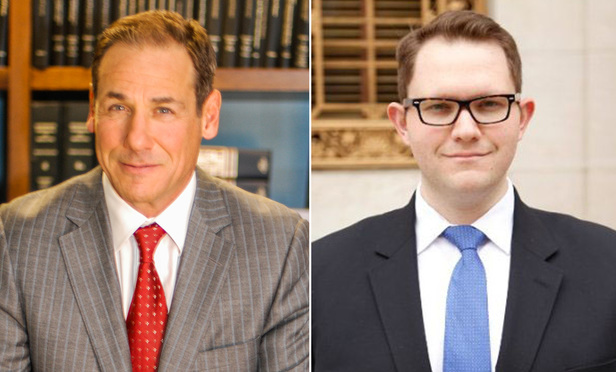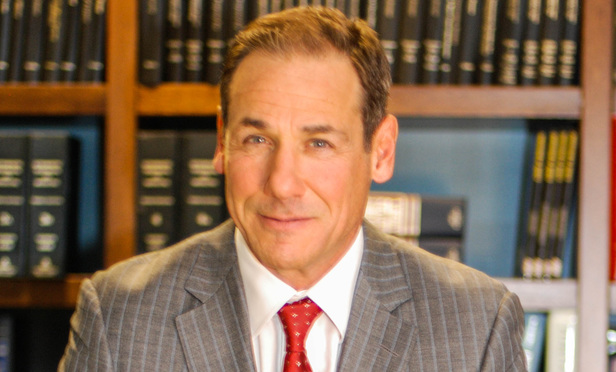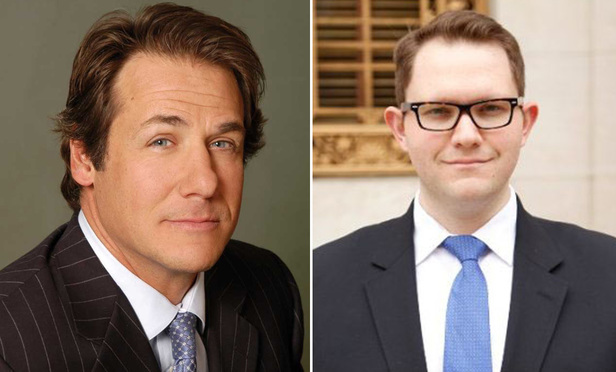Jeff S Korek

June 08, 2022 | New York Law Journal
The Acoustic Neuroma Anomaly: The Need for a Legislative Fix to an Unintended Consequence of Lavern's Law in Cases Involving a Failure To Diagnose Non-Cancerous or Benign TumorsAs it stands today, and as it is unlikely to change without an act of the state legislature, a plaintiff who is the victim of blatant medical malpractice but does not become aware of it until after two-and-a-half years from the initial treatment date, will not have any recourse if the condition is not either cancer or a malignant tumor.
By Jeff S. Korek and Abe Melamed
9 minute read

November 18, 2020 | New York Law Journal
Look to 'Optical' in Deciding COVID-19 Business Interruption CasesTo save thousands of New York business from closing their doors permanently, New York courts should look to the New Jersey case 'Optical Services USA/JCI v. Franklin Mutual Insurance Co.,' for a decision and rationale that is consistent with New York jurisprudence.
By Jeff S. Korek and Anthony Makarov
6 minute read

June 04, 2018 | New York Law Journal
Rebuttal Witnesses at Trial in the Case in ChiefWhen the primary reason plaintiff seeks to introduce rebuttal testimony is to simply bolster their own case and counter the defendant's, courts generally do not permit the rebuttal testimony.
By Jeff S. Korek and Abraham Z. Melamed
11 minute read

June 07, 2017 | New York Law Journal
Binding Trial Attorneys by Their Opening StatementsJeff S. Korek and Abraham Z. Melamed write that although the theory is rooted in a U.S. Supreme Court decision more than 130 years old, it is a decision that has never been overturned, and is aged like a fine wine, ready to be trotted out and showcased in an argument that attorneys should be bound at trial by their opening statements.
By Jeff S. Korek and Abraham Z. Melamed
10 minute read

December 16, 2016 | New York Law Journal
Drawing Negative Inference When Civil Defendant Invokes Fifth AmendmentJeff S. Korek, of Gersowitz Libo & Korek, examines the ramification if a civil defendant invokes the Fifth Amendment right to remain silent. Can a plaintiff's attorney in the civil action use the defendant's silence to draw a negative inference for the jury about the defendant's liability? These are just a few of the questions that arise in this complicated intersection between criminal and civil law.
By Jeff S. Korek
22 minute read

May 19, 2016 | New York Law Journal
Mitigating Potentially Damaging Evidence at TrialThe first and foremost principle of dealing with potentially negative evidence against a client is "do not attempt to mislead the jury and try to hide the evidence." But how do you approach effectively mitigating such evidence, in order to present your client in the most favorable light? The best practice is to move by motion in limine, prior to jury selection, to have the evidence excluded, but what if that fails?
By Jeff S. Korek
23 minute read

November 23, 2015 | New York Law Journal
Bringing Opening Statements to Life With Visual AidsJeff S. Korek and Abraham Z. Melamed write: One extremely effective, yet fairly uncommon method of taking advantage of the first, and likely most important impression an attorney will make on a jury—a method that can potentially win a case from the start—involves the use of visual aids in conjunction with an opening statement.
By Jeff S. Korek and Abraham Z. Melamed
14 minute read

November 20, 2015 | New York Law Journal
Bringing Opening Statements to Life With Visual AidsJeff S. Korek and Abraham Z. Melamed write: One extremely effective, yet fairly uncommon method of taking advantage of the first, and likely most important impression an attorney will make on a jury—a method that can potentially win a case from the start—involves the use of visual aids in conjunction with an opening statement.
By Jeff S. Korek and Abraham Z. Melamed
14 minute read

July 17, 2015 | New York Law Journal
Unconventional Lawyering Leading to Conventional CredibilityJeff S. Korek and Abraham Z. Melamed write: Oftentimes lawyers become so entrenched in doing the orthodox that they end up losing out on great opportunities to strengthen credibility with a jury. What's more, attorneys can get caught up in the vision of fighting tooth and nail, line by line, and as a result miss out on important perspectives that can help their case simply because they refuse to think outside the box.
By Jeff S. Korek and Abraham Z. Melamed
11 minute read

July 16, 2015 | New York Law Journal
Unconventional Lawyering Leading to Conventional CredibilityJeff S. Korek and Abraham Z. Melamed write: Oftentimes lawyers become so entrenched in doing the orthodox that they end up losing out on great opportunities to strengthen credibility with a jury. What's more, attorneys can get caught up in the vision of fighting tooth and nail, line by line, and as a result miss out on important perspectives that can help their case simply because they refuse to think outside the box.
By Jeff S. Korek and Abraham Z. Melamed
11 minute read
Trending Stories
- 1Coral Gables Attorney Busted for Stalking Lawyer
- 2Trump's DOJ Delays Releasing Jan. 6 FBI Agents List Under Consent Order
- 3Securities Report Says That 2024 Settlements Passed a Total of $5.2B
- 4'Intrusive' Parental Supervision Orders Are Illegal, NY Appeals Court Says
- 5Federal Laws Also Preempt State's Swipe Fee Law on Out-of-State Banks, Judge Rules



